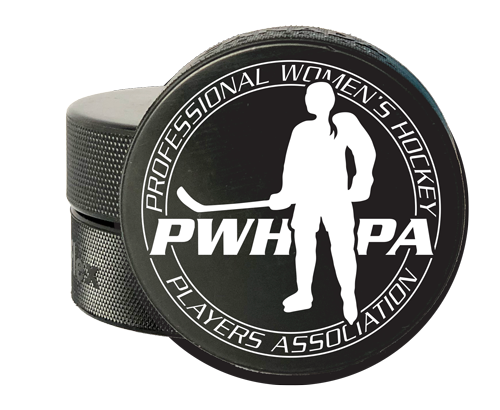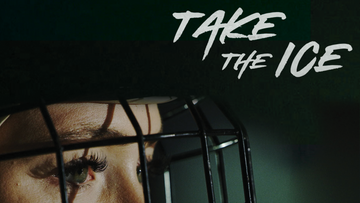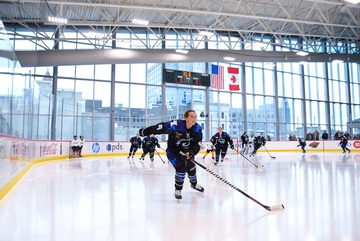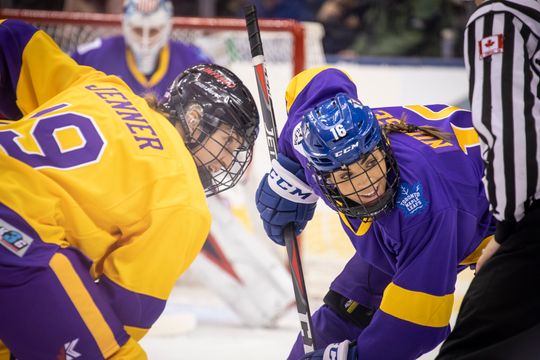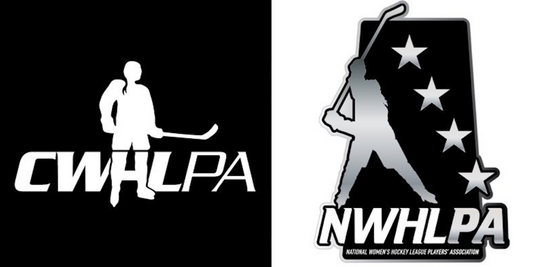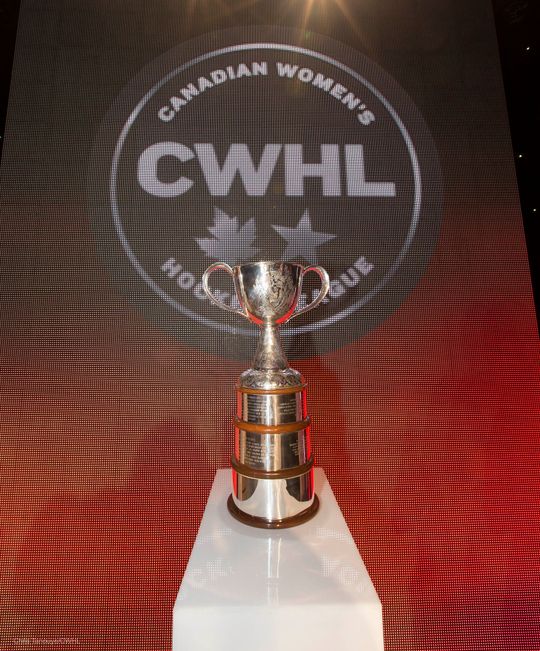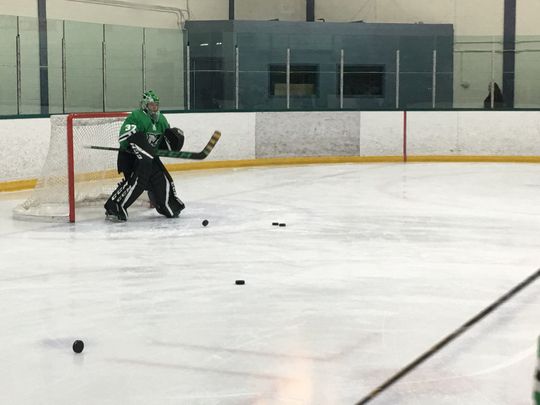It's almost August in an historic women's hockey offseason – the month when we were tentatively promised more news about the professional women's hockey league which is planned to debut in January 2024. The new league will launch alone, since the Mark Walter Group purchased the Premier Hockey Federation late last month. The PHF's seven teams are no more, though the Mark Walter Group now owns all brand assets. The ownership group will be fully responsible for the operation of the new professional league and its teams.
Liz Knox was a member of the bargaining committee that secured the first-ever CBA in North American women's hockey history for the new league. Knox, a former goaltender with the Markham Thunder, is no longer an active player, but she has a long history of women's hockey labor leadership as a former member of the CWHLPA. She also served on the PWHPA board, before stepping down in 2020 to make way for Sarah Nurse to join the board and provide essential representation for BIPOC players. She remained with the PWHPA as an advisor, and then joined the PWHLPA bargaining group to give a voice to working players.
(As an aside: The PWHPA as a nonprofit has an uncertain future. The nonprofit and its board are ultimately not related in any formal sense to the new PWHLPA union or to the new league, aside from some overlap in personnel between the PWHPA board and players who will be eligible to play in the PWHL and be represented by the union.)
Knox's fellow bargaining committee members – Brianne Jenner, Hilary Knight, Kendall Coyne Schofield, and Sarah Nurse – were all high profile national team players with either the United States or Canada. Knox isn't one of those. While she did represent Canada internationally in a brief stint in 2011, winning gold at the Winter Universiade and participating in an IIHF 12 Nations round robin showcase, she's never been on a senior national team roster or been to the World Championships or Olympics. When Knox joined the PWHPA board and later the PWHLPA bargaining committee, she did so with the intention of representing and elevating players like herself.
"I wanted to represent the non-national-team player perspective, like the working player who has a job," she said via a phone call with the Victory Press on July 28. "How do we keep that population of players happy? Because you know, we're not oblivious to the fact that those are the players, in my opinion, that kept women's hockey alive for the last 30 years. It's great that the Olympians get the notoriety and the spotlight that they do, and they've certainly earned that because they're the best at what they do. But the working player has been the heartbeat of women's hockey."
Knox is referring to the dichotomy that has existed in the sport for so long between national team players and everyone else. American and Canadian players who suit up at the senior level for their countries receive financial support and resources. Those players don't need to take additional jobs to make ends meet, but anyone who has been around women's hockey for any amount of time knows that this is not the norm. A pro-level player who isn't supported by their national team might also be a chemical engineer, a teacher, a graphic designer, or an EMT. Other players also coach – not just offseason clinics but actual full-time coaching gigs with universities or high schools or hockey academies. These are players for whom long drives, late nights, and no weekends are a constant reality. But they're also the players that have played in the original NWHL, CWHL, and NWHL/PHF teams for decades, cracked competitive rosters, and been the essential fabric of the sport, especially during Olympic cycles.
Knox believes that they deserve the same professional experience as the Marie-Philip Poulins and Hilary Knights of the world – not to mention guaranteed wages and benefits that can't vanish overnight or be reneged on – and that's what she wanted to represent in the collective bargaining process. "[For] women with full-time jobs, it has to be worth their while to play in this league versus just continuing on their careers," Knox said. While she found it essential to represent that perspective, she also was keenly aware that the PWHLPA's negotiating power largely lied in their ability to bring the best players in the world to the table. During the CBA negotiation process, the players had no idea that the Mark Walter Group were negotiating the PHF buyout. As high-profile signings continued to drop on the PHF side (former PWHPA board member Noora Räty and Swiss superstar Alina Müller, for example), Knox was worried about their ability to get a deal done.
"We were quite shocked, because the bargaining committee found out very shortly before the rest of the players found out," she said of the PHF sale. "And we had no idea that this was happening in the background. You have to understand – like, we're sitting there at the bargaining table watching players sign in the PHF, and in a strategic situation, we have very little leverage in this conversation other than we've got great players that play in the PWHPA who want to play in this league that we've dreamed. As we see players sign in the PHF, we're losing essentially momentum or leverage to say, you know, we have the best players in the world," she recalled. "It was difficult for us because we had no idea the sale was happening at the same time."
Knox specifically wanted to clear up any misconception that the PWHPA purchased the PHF or that they even could have done so. The PWHPA or PWHLPA didn't have the means, and were just as in the dark as the PHF athletes until the sale was announced. "Any money that we've raised over the Secret Dream Gap Tour has gone to either the next year in the Secret Dream Gap Tour, getting players [to locations], and funding the events, or has gone to hiring the [legal] team that we needed to get into these [CBA] negotiations," Knox said.
To Knox, the CBA isn't 100% perfect. She acknowledges that there were some compromises made on the players' side, such as on the term length of the deal (the investor group had wanted it to be longer). She also said that the number of teams decided upon for the league launch – six – was decided well in advance of the PHF buyout. She wondered if the conversation about the number of teams would have gone differently if they had known that seven PHF teams were about to be shuttered. On the flip side, though, she felt that their demands about working conditions were well-received – to the point that the negotiators for the ownership group were taken aback by the specificity of their requests.
"Honestly, you're dealing with the LA Dodgers. And these guys do professional sports. When we're specifying like, no, we don't want gas station sandwiches after a game – they literally laughed across the table. They laughed at us," Knox recalled. "[Because] they're like, of course we wouldn't do that to you. And we're like, no, we have to say these things because this is the reality that we've been in the last 30 years. And again, that's not taking shots at anybody. I played ten years of post-collegiate hockey and I've seen it all. I've seen the good side too. [We were] going in the right direction, but it's not good compared to what professional sports expects as their baseline. [They were saying] of course, you're gonna get meals before and after games, before and after practices – because they're seeing us as the product." Knox emphasized the protections and guardrails in the CBA about things like the length of the workday and player obligations, and the financial support the league will be required to provide towards housing and regular hockey-related expenses that players previously have often had to cover themselves, and which were not provided for in previous women's hockey contracts.
While Knox doesn't know what her future holds in hockey, she said she would love to remain involved with the players' association – though she already has another full-time job and may not be formally involved in the new league long-term. She ultimately devoted her time to shaping something that she may never benefit from professionally or personally. "Nobody really did this for their own benefit," she said. "It just felt like it was time for this to get done. Like we needed to have what we had envisioned as a truly professional league."
When I asked Knox, "What would you say to somebody who thinks that this has been a step backwards or something negative for the sport?", she responded as follows:
"I mean, I would say I understand because four years ago I was that I was in those shoes. The CWHL folded from underneath us. Women's hockey fans, players, and the community [are] very, very passionate. That's why we love 'em. I understand that frankly, feelings are hurt.
Everyone wants to be the one who comes out, you know, as quote-unquote 'winning.' And I understand. I hear it. I really, truly get it. When we told the players on the all-player call, Stan Kasten delivered the news to all of our players. He then jumped off the phone call and my first comment was like, let's just remember that people's lives have been changed by this news. Like this going to be hurtful for them. They're going through a lot. Their futures are uncertain.
Again, this is the [kind of] player that I represent. You know, it's the non-national team player who works as a teacher during the day and loves playing hockey at night and devotes time to the community. I can imagine getting that news that day. If I'm a PHF player or a supporter or a fan or owner, GM, whatever, you dedicated your time and your life to this and you're passionate about it.
I understand the disappointment and I understand that sometimes that translates into anger and negativity. And I understand that more often than not, the PWHPA is going to be the target of those emotions. I think you have to go through that as part of a grieving process, if you will.
But I also think that it would be unfair to think that the PWHPA created a CBA that would exclude [people]. We're trying to do what's best for everybody. We didn't know that the sale was happening, which is why we negotiated six teams. I mean, that's just a fact of the matter.
Had we known the sale was happening, maybe that looks differently. I don't know. But we just worked with what we knew. We weren't the big player in all of this. It was the investors. And at the time we were just focused on making sure that the players that did have a job [in the new league] were well-protected with benefits: a reasonable salary that increases, housing stipend, meals, guardrails around their workday.
It's tough. It's tough. And I really empathize for our players as well. I mean, seeing, you know, my colleagues, my friends now being called out in articles, basically pointing a finger at them saying they're the worst thing that ever happened to women's hockey... You didn't see the raw emotions in those people when we're at the negotiating table. You didn't see the heartache and the tears that went into what they created. And I think that the pressure is a privilege. These are Olympic athletes. They wear it well, they're classy. They walk with their head high. They let the insults and the targeted comments bounce off them. But on a personal level, they're still people who are just trying to do what we believe is right for the game."
To Knox, professionalism is about the experience as much as it's about the talent. If talent alone were enough to make a league with a high-level professional experience, all of this would have been a non-issue as soon as women's hockey took the Olympic stage in 1998. Everyone has been able to see plainly that the women's game is elite since at least that time. But everything else has lagged behind, according to Knox, and that's what necessitated a unionized league with the best players. "It's not the talent; especially in the last 10 years, it's not the talent. Talent is there. [But not] the experience of the game for the fans, for the players, for the coaches and GMs as well," she said. "I've grown closer to [the coach and GM] side and it's just – you're trying to make something outta nothing. You're on a shoestring budget and you're trying to make it feel good. It's not on anybody, like there's so much hard work that goes into it, but it's falling short on all levels. And I think it was just time for that experience for everybody to be elevated."
When Knox became part of the nascent PWHPA back in 2019, she wasn't thinking about it specifically as an organized labor action. But now, she understands that this is part of a broader conversation about labor across North America. "I had a conversation with Dr. Courtney Szto right when we formed the PWHPA, and she's somebody who's much brighter than I am, and she acknowledged to me that we were in a labor movement, and I was like, what?" Knox recalled. "We were just saying, you know, enough is enough. The PWHPA in [its] inception was an older group of players who had experienced either the NWHL or the CWHL. Some of them experienced the original NWHL."
"And it was just – enough is enough," she continued. "So we're gonna remove our labor. To highlight the fact that we don't have the working conditions we believe we deserve. And when I say that now, four years later, I'm like, holy smokes. Like that is a really bold thing that we did." Knox highlighted that 200 athletes participated in the inaugural year of the PWHPA, and that 150 players tried out to make 100 roster spots in the last year – despite the fact that the PWHPA members were scattered all over the globe and rarely got to work together in person. "It's crazy that we were able to stay so steadfast on that mission. It kind of highlights the fact of just how bad it was. Like, how do you keep 200 women thinking, Hmm, this is not good enough, unless they truly believe this is not good enough."
Knox thinks that the COVID-19 pandemic has highlighted the need for labor protections across society. "I think that, especially in [COVID times], society is just in a space where we're starting to realize that, you know, life is short and we wanna be able to spend our days and spend our time on things that make us truly happy and, you know, we need money to survive. So we have to have good working conditions... I think it's a really interesting time and shift in society and economics where the underdog or the little guy feels like, okay, well, I'm gonna take hold of my fate then, and stop just accepting that I have to be miserable in my day-to-day life."
Knox also knows the road ahead for the new league will not be an easy one, and that the first year in particular will be difficult. It's now on the ownership group to execute the experience that the CBA has legally codified. Expectations are high. The league will need to be marketed in the right way – in Knox's words, "interactive, family-friendly, and inviting." She also hopes the new league will embrace the opportunity to prioritize diversity and work with marginalized communities: "Oh my gosh – that's just who we are. A great population of your players are part of those communities. A great population of your staff should be in LGBTQ+ communities [and from] racialized minorities," she said. "When you spend your entire life feeling like you play a sport where you don't fit in, what a great opportunity it is to open the door to the next person who feels that way. I'm hopeful that we're able to capture that, that the league is very well aware of the unique opportunity here. I'm not a business person, but from what I understand about marketing, your whole world revolves around getting people to fall in love with, to need, to want a product. And you have [whole demographics] of people who have felt excluded from this one sport. What a great opportunity."
"When we first formed the PWHPA, somebody had this saying. I heard this saying early on, and it's really stuck with me, which is: you have to figure out how much you wanna stand out and how much you wanna fit in," Knox said. The new professional women's hockey league has the same incredible task. They have to stand out in sports landscape with literally thousands of viewing choices, in a sports media sphere that is eating itself alive thanks to a broken advertising-and-VC-based business model, and in a sports broadcasting environment overly complicated by a glut of streaming options and byzantine rights contracts. Even more established women's leagues like the NWSL and WNBA struggle to muscle their way into this world that has been long dominated by the alleged "known quantities" of men's leagues.
The new league also needs to fit in – it needs to feel like home for hundreds of potential players and thousands of fans. It needs to provide an experience where a player signing after four years in the NCAA doesn't feel like they're taking a massive downgrade. The locker rooms, the venues, the equipment, and the staff all need to be world-class. It needs to make fans' hearts skip a beat when they walk in to the arena.
The games need to feel special, not just in terms of on-ice talent but in the production values of how they're delivered. The new league will need to reach viewers across North America in a way that women's hockey has never been able to reach before if it hopes to be successful. We don't even know where the teams are going to be yet, or if "PWHL" is even going to be the league's name. With not a lot of runway between now and January 2024, these decisions need to be made soon, and they have to be made for the long term.
Most importantly, the new league needs to be reliable and transparent – key areas where its predecessors in the CWHL and PHF never seemed to hit the mark. The buyout needs to be the last thing the players and staff are ever in the dark about. The historic CBA is only a first step towards making any of this happen, but it's an important one. "They want to keep the product healthy. There's going to be a really interesting balance of making sure that we're able to promote the league and get this thing really to the level that we want it to be at," Knox said. "Now that I've had time to digest it – the bargaining committee is extremely proud of what we did."
Editor's note: an earlier version of this piece could have been read to imply that the players' side had wanted a longer-term CBA deal. The investor group had wanted a longer term than the players and the eight-year deal became the compromise.
